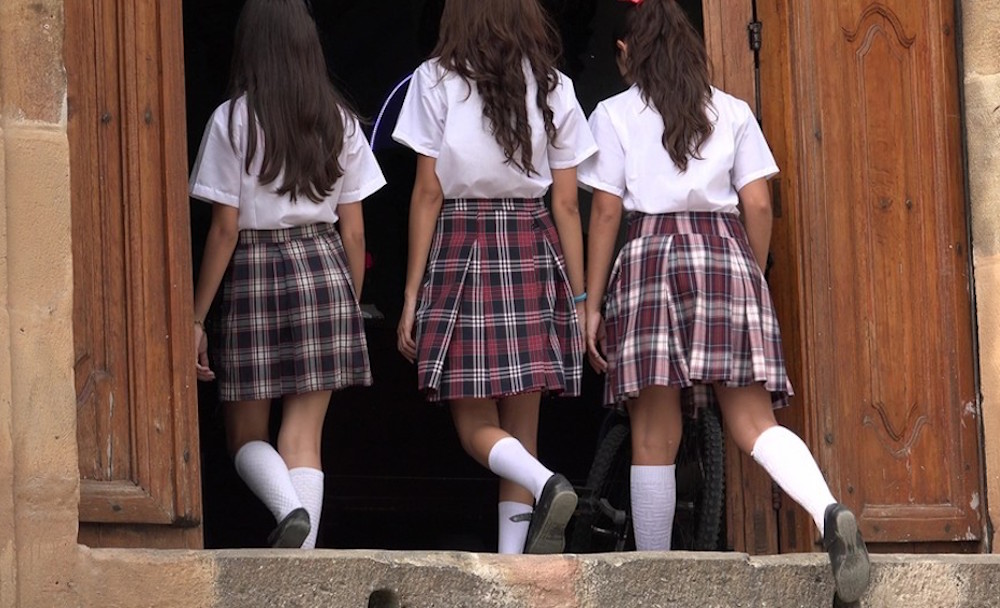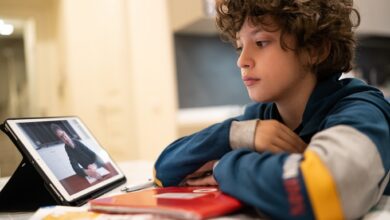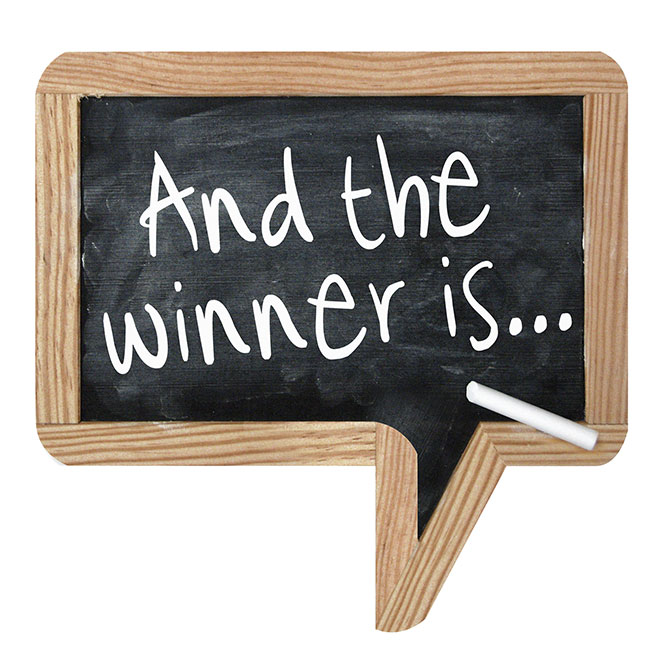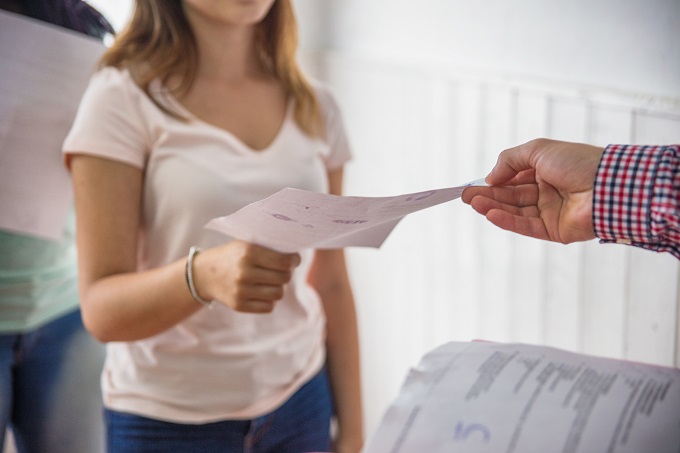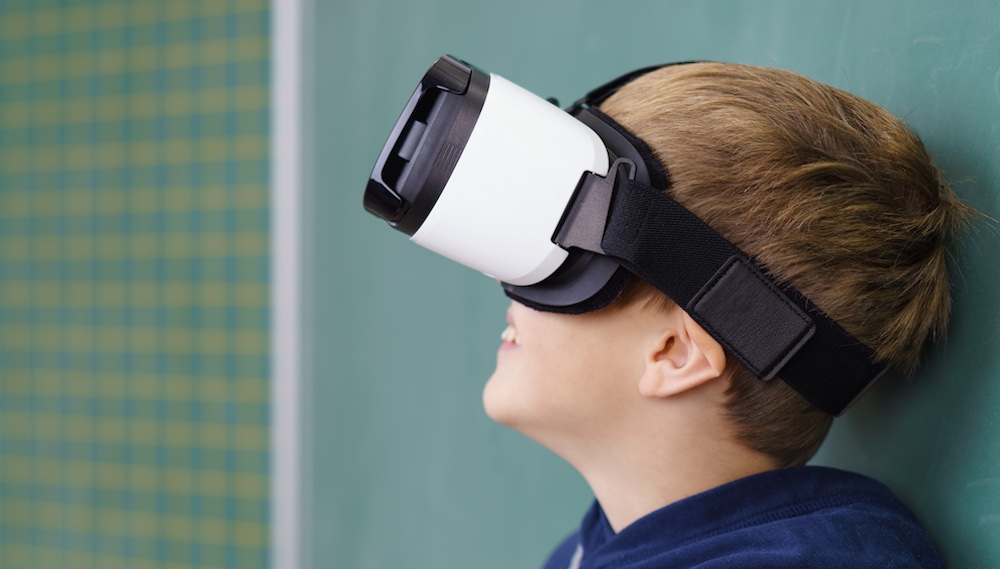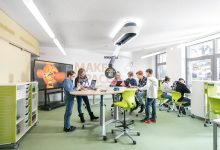Teachers awarded for groundbreaking sustainability projects
Teachers across Australia are going above and beyond to address sustainability and inclusion issues including food waste, recycling plastic, and transition to primary school for children with disabilities, backed by the 2022 NGS Super Scholarship Awards.

The awards are designed to help education workers contribute to the sector and foster their professional development, with six $5,000 scholarships awarded across three categories of navigating life, sustainability, or general.
The winners’ incredible initiatives focus on Indigenous language and cultures, support for families with disabled children, and increased sustainable practices in schools through repurposing plastics and reducing food waste
The teacher-led projects tackle food waste by developing composter systems to power school stovetops, integrate sustainability and business skills by teaching students to repurpose high-density polyethylene (HDPE) plastics into pens for market and sale, seek to better understand the transition to primary school for children with disabilities, and work to build a sustainable urban farm from wasteland.
The awards, run by the industry superfund for the education and care sector, recognised six winners on World Teachers’ Day for their innovative ideas and commitment to create a better and more sustainable tomorrow for current and future generations. The NGS Super Scholarship Awards program’s Acting CEO Natalie Previtera said this year’s winners are inspirational and full of hope for a more sustainable future.
“We’re celebrating teachers’ commitment to our future generations. This year’s scholarship winners have presented ideas that have the potential to create blueprints for others to continue to improve,” she said.
The Judges’ Choice winner, Nicole Trinca, from New South Wales, will use her scholarship to create a framework to ensure children with disabilities start school with equitable and inclusive opportunities.
“My project will examine the transition to primary school for children with disabilities, through investigating the critical interface with parents and teachers, and the associated enablers and barriers.
“On a larger scale, I hope this project has the potential to systematically influence educational transition programs and policies, supporting children with disabilities to reach their full potential,” Trinca said.
“Our Scholarship Awards are a fantastic way to give back to our members and to help inspire and enable educators who want to make a positive impact for our children,” Ms Previtera said.
The six winners of NGS Super’s $5,000 scholarships are:
- Jay Chew (VIC) – Tackling food waste by developing composter systems to power school stovetops.
With each student discarding an average of 3kgs of food waste each year, food wastage is a major concern at Jay’s school. His project will focus on a campaign exploring the severity of food waste and empowering students to change their food and waste habits. The project will include two key elements – students donating excess food to the local foodbank and soup kitchens and the installation of a biogas digester and food scrap composting system to power stovetops at the school’s cafeteria. The project will support students in their continued education about reducing their carbon footprint at home and school.
- Margaret Kroeger (NSW) – Integrating sustainability and business skills by teaching students to repurpose high-density polyethylene (HDPE) plastics into pens for market and sale.
Concerned about the impact of plastics on the environment, Margaret’s project will look at repurposing HDPE plastics into pens. Involving students from across the school the project will produce pens from recycled milk lids. The Scholarship monies will be used to buy equipment to support the production of pens – and their sale will help build a business which will support environmental charities. For Margaret and her students, it’s all about building a circular sustainable business. The project will have practical application across maths, science, technology, English and business studies and give students a grounding in the values of collaboration, environmental awareness and student led enterprise.
- Nicole Trinca (NSW) – Better understanding the transition to primary school for children with disabilities.
Passionate about breaking down barriers for children with disabilities, Nicole’s project aims to support a smooth transition for children and parents as they move into primary school. Working with parents and teachers the project will investigate how children with disabilities currently transition to into the school environment and identify supports and strategies that will enhance their inclusion in school life. Nicole is excited to create a framework to help teachers and children as they move through school. She is hoping it will remove barriers for children and lead to positive improvements in their quality of life at school and beyond.
- James Horrocks (NSW) – Building a sustainable urban farm from wasteland.
Developing sustainable projects and becoming carbon neutral is a goal for James’ school and this project will focus on setting up a sustainable farm and café. By connecting indigenous culture, science (agriculture) and hospitality, the project will build the farm and café with a focus on 17 sustainability goals. Menu items such as carrot cakes, salads, eggs, will be made from produce grown and harvested at the school allowing students to develop skills in sustainable agriculture, entrepreneurship, finances, marketing, and communication with the local community including parents and guests.
- Elizabeth Twigden (SA) – Course and curriculum development to revive the language and culture of the Kaurna People of the Adelaide Plains, working closely with Kaurna Community leaders.
Elizabeth’s project will focus on reclaiming the language and culture of the Kaurna People of the Adelaide Plains. Working closely with Kaurna Community leaders Elizabeth will develop the course and curriculum materials. She also intends to start a collaborative network of teachers using the Kaurna language in schools within South Australia. For Elizabeth offering students, the opportunity to learn the language and culture of the First Nations People, on the land on which they are living and studying, helps with “closing the gap” for Indigenous Students and broadens the cultural capacity of those who are non-indigenous. The project will be inviting students to be bold, make change and make a difference.
- Erin Storry (SA) – Creating an app to prepare children and families for the transition into schooling.
Readiness for school can have a big impact on a child’s attitude towards learning and success. So, making sure they have the skills to transition into school life is important. Erin is looking to help children and their families work through the transition to school by creating an app to help them build skills to be school ready. The app will use interactive games to address independence, social/emotional skills, and academic skills. Children will progress through levels collecting medals along the way, while parents will receive notifications on their progress and areas which might need development. Erin hopes this will give parents time to address or seek expert advice on any areas of weakness before their child starts school.

